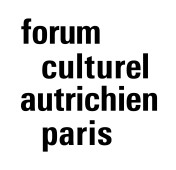Luciano Berio, Zara Ali, Sara Glojnarić, Eva Reiter, Ni Zheng
octoberoct 24
Friday october 24
20h
Sara Glojnarić, Pure Bliss, for ensemble, conductor and electronics (2022). French premiere.
Eva Reiter, Irrlicht, for ensemble and electronics (2012). French premiere.
Ni Zheng, Cauldron of Mania, for ensemble and electronics (2025), commissioned by the Ensemble intercontemporain and the Festival d'Automne à Paris. World premiere.
Zara Ali, Œuvre nouvelle, for ensemble and electronics (2025), commissioned by the Ensemble intercontemporain and the Festival d'Automne à Paris. World premiere.
Luciano Berio, Folk Songs, for mezzo-soprano and seven instruments (1964).
Ensemble intercontemporain
Vimbayi Kaziboni conducting
Sarah Aristidou soprano
The Philharmonie de Paris and the Festival d'Automne à Paris co-present this concert.
![]()
For your convenience, adapted seating may be available. We recommend that you purchase your concert tickets in advance, specifying any special needs you may have, from the Cité de la musique - Philharmonie de Paris at the time of booking, by telephone on 01 44 84 44 84 or by e-mail at accessibilite@philharmoniedeparis.fr.
Avec le soutien d’Albertine Music, un programme de la Villa Albertine & Albertine Foundation.
Four female composers, take up, sixty years later, the utopic quest for continuity between the so-called popular arts and the so-called learned arts, as expressed in Luciano Berio's Folk Songs. In order to do so, they turn their attentions to sound of an impure nature, raw impulses and the sensations brought on by a tremor.
"My relationship with popular music is often an emotional one. When I work on this kind of music, I am filled with the joy of the explorer," Luciano Berio once said. His Folk Songs are a well-known anthology of eleven works, from North America, Armenia, Auvergne, Azerbaijan and, of course, Italy. By transcribing and elaborating what he considers to be sound documents, based on an imaginary philology, Berio gives voice to the context that produces them and which is transformed through the effect of writing and performance.
From out of brief bursts of Irrlicht, Eva Reiter creates will-o'-the-wisp images and other ephemeral lights, manifestations of the spirits of the earth. Ni Zheng, on the other hand, scrutinizes disorder, the deviant, the untamed and the visceral, a grotesque poetics of the flesh. Turning to pop culture, its images and different media, body-related practices and aesthetics, as well as through various excerpts, pulled in all various directions, Sara Glojnarić appeals, in a way which is not devoid of nostalgia, to our collective memory, in search of a musical ecstasy. By means of its different timbres and discourse, the work of Zara Ali translates geometric and kinetic structures into physical sound. In doing so, she immerses us in the visions of a contemporary world that willingly shifts reality.
See also
In the same place




